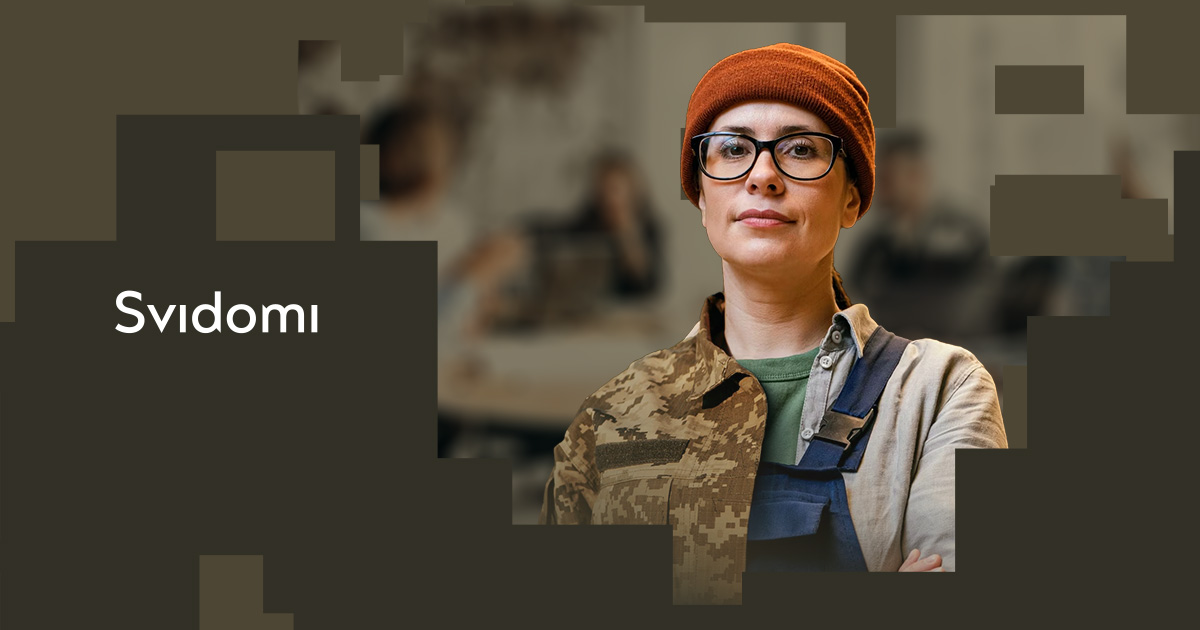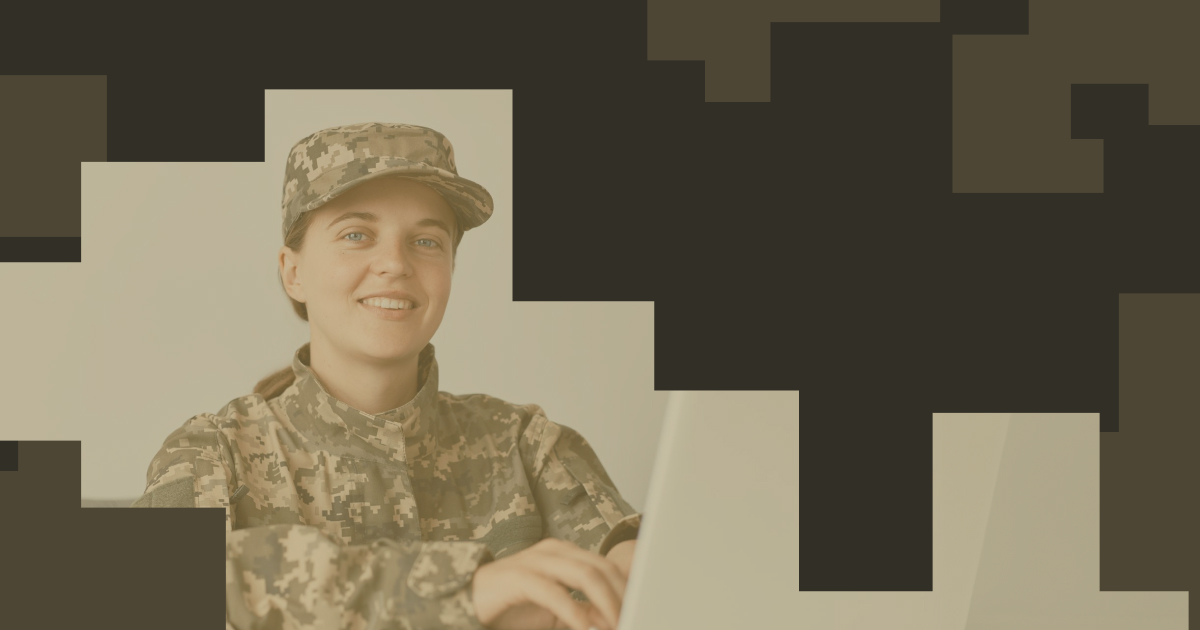The mobilised and civilian profession: Skills, health, society

Russia's full-scale invasion affects Ukrainians not only on the battlefield but also in civilian life, and it is not only missiles that ruin this life — the Russians steal time for personal development. And the military themselves admit that it is difficult for them to find a moment not even for development but to keep their skills up to par.
The war is started by servicemen and finished by teachers, engineers, and accountants,
said Commander-in-Chief Valerii Zaluzhnyi. Hundreds of thousands of volunteers and mobilised people have left their regular jobs to defend Ukraine.
There are unique situations when soldiers manage to continue their work from the frontline. For example, a lecturer at Uzhhorod National University and Corporal Fedir Shandor, who conducted online lectures from the trenches near Izium.

However, this requires, at the very least, that no one tries to kill you during the lecture. These are privileges that are not available to all military personnel.
Russia's full-scale invasion has stolen time from the vast majority of Ukrainians. This is both the time to spend with your family and enjoying life and the time for personal development.
In the case of many people, especially combatants, it is not even about development but about the time needed to maintain their skills at a certain level.
But Russians steal not only time but also health. This is particularly relevant when it comes to mild traumatic brain injuries. In 2019, scientists from the National Academy of Sciences and the Ukrainian Military Medical Academy studied this injury in veterans of the Russian-Ukrainian war and found that 48% of patients complained not only of pain but also of other symptoms that have greater social consequences: increased fatigue, irritability, significant reduction in performance, and family problems.
It can be difficult to return to your usual profession in this condition, especially if it involves communication with people.
Exclusion or return?
Let's start with quantitative data. In August 2022, the Ukrainian Veterans Foundation conducted a survey among veterans about their aspirations, plans, and needs. At that time, about 60% of veterans who had previously participated in hostilities had re-enlisted in the army. The UVF asked them whether they planned to return to their previous jobs. Most of them do, but it all depends on the profession. More than 70% of medical and IT workers plan to return to their field. In contrast, for people in teaching, education, or science, the figure is 40-50%.

To supplement the information with qualitative data, Svidomi talked to Private Taras, who served in the army from 2016 to 2020 and has already had experience returning to civilian life.
He studied at the Kyiv Polytechnic Institute but was expelled and conscripted. He completed his military service, at the end of which he signed a contract and continued to serve. "It was time to choose a career, and the army gave me room to grow," Taras recalls. At the same time, he was interested in design, and even while in the combat zone, he managed to study this field.
"I didn't have a lot of free time, but I used it productively," the soldier recalls. It is not surprising that he had little time — Taras was assigned to the 95th Air Assault Brigade and took part in the liberation of Verkhniotoretske, Donetsk region.
When the contract came to an end in 2020, Taras decided not to sign a second one. At the time, this was a common practice that hindered the development of the army. That's why the Come Back Alive Foundation created an analytical report on the reasons for the dismissal. Non-competitive salaries were among them. This was the case with Taras: while still in the army, he started doing small design jobs and earned decent money. Besides, he wanted to spend more time with his family.
So he started studying design — thanks to his savings, he could afford it. He loved it. "It's cool, it's my calling," says Taras. In early 2022, he was already being interviewed for a full-time position. On February 14, he received a call from the recruitment centre. The man said that he did not live in his hometown but in Kyiv. The conversation ended there. On February 24, the last interview was supposed to take place, but it was postponed due to the full-scale invasion. When the employer called the next time, it was too late — Taras had voluntarily returned to the army.
Now he is not involved in combat but is forced to work both physically and intellectually. The private has more experience in organisational work than the mobilised officers, so he has to help them. There is almost no time left for design: the man has done various projects for his friends but cannot remember the last time he received a customer order.
I feel that my skills are getting worse,"
he admits. He explains that before drawing something, you need to analyse the composition and imagine how it will look on paper. "The analytical part of me is not focused on design now," Taras says, adding: "I know how to do it, but I feel like I'm not doing it right."
From time to time, the serviceman thinks about what comes after. He wants to return to design but thinks it will be difficult to find a job. He believes he is out of touch with trends and new technologies. The man has some spare money for his studies, enough to stop working for a while and study again. But that's not the problem. Taras is worried about uncertainty, he asks himself: "Will I have enough human perseverance to study?"
As for his physical condition, Taras considers himself privileged: he was not injured during the fighting. However, the military service is taking its toll. Recently, the soldier was on a mission and lived in a dark area. In two months, his eyesight has deteriorated. This makes it even more difficult for him to return to design.
He also knows about the psychological effects of military service. His last return was not easy: he spent a long time feeling different from civilians. "You walk down a crowded street, there are people around, they are not your enemies, but it's like you are a schoolboy, and there are big boys around you," the soldier recalls.
However, he does not feel hostility towards his design colleagues who remained civilians and can now develop in the industry instead of working hard physically.
Taras respects honesty and the ability of a person to admit their fear of military service, but he reacts negatively to attempts to use the "economic front" as an excuse.
He believes that the state can help the military, for example, by introducing tax holidays for businesses that will fill a certain percentage of jobs with veterans. IT companies can offer "rehabilitation" courses that will allow demobilised people to restore their skills.

A social contract
But there is a more radical way to help veterans — positive discrimination. It involves state intervention in market mechanisms to give preference to those people who are disadvantaged through no fault of their own. In his speech on the occasion of Constitution Day, the President of Ukraine has already declared his desire to involve veterans in the civil service. For example, the previously mentioned Corporal-Professor Shandor will become the next Ambassador of Ukraine to Hungary.
Do we want this to be the way we return the time and health stolen by Russia to veterans? Or will we rely solely on non-governmental support for our defenders? Ukrainian society needs to agree on a new social contract by answering these questions. Otherwise, positive discrimination will become a fuel for conflict and deepen the organic boundary that emerges between people with radically different experiences — civilians and military.
After all, Ukrainian society has already demonstrated its suspicion of positive discrimination: until 2022, every summer, during the admission campaign to higher education institutions, there were battles over the allocation of state-funded places to internally displaced applicants and admission without external testing. We must prevent this if we want to avoid a social split.


